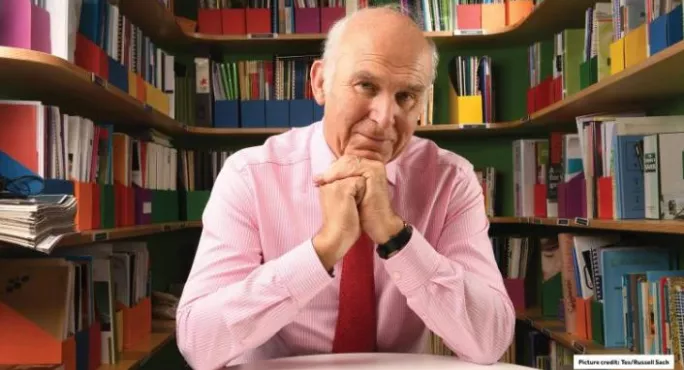The apprenticeship levy has “turned into a bureaucratic nightmare” due to poor implementation, according to Sir Vince Cable.
The Liberal Democrat leader, who was responsible for apprenticeships policy when he served as business secretary under the Coalition government, has said that the levy has become a “revenue-raising measure” for the Treasury.
The drop in apprenticeship starts since the introduction of the levy is getting even more severe, the latest monthly government statistics have revealed.
Apprenticeship levy ‘overly restrictive’
In today’s Tes, Sir Vince, a life fellow at City Lit, writes: “The original idea behind the levy was that companies that trained their staff would be rewarded; those that did not would pay a levy for the common interest. Somewhere along the line, the original philosophy was lost.
“Businesses have complained that the system is overly restrictive and difficult to use. They are unhappy about a requirement that funds need to be spent within 24 months, because it typically takes longer than two years to get a programme off the ground.”
He calls for wide-ranging reforms of the levy to “turn a good concept into a workable system that would re-energise the apprenticeships that are so vital to our society”.
Cable’s levy reform plans
- Abolish the 10 per cent co-investment requirement for non-levy payers.
- End the 10 per cent funding top-up for large, levy-paying firms.
- Increase the percentage of funds that can be passed down the supply chain by levy payers
- Increase the rate paid by the largest businesses - “once the reformed levy has proved effective in raising both the quantity and quality of training”.
- Create a Cabinet committee on skills and lifelong learning, and replace the junior ministerial role of apprenticeships and skills minister with a cross-departmental minister for training and skills.
- Turn the apprenticeship levy into a wider skills and training levy, but “only when companies have proved that they have an apprenticeship programme”.
- Use a quarter of the funds raised by the levy - some £750 million a year by 2020 - to create a social mobility fund targeted at areas with the greatest skill needs.
- Introduce targets for women, the disabled and those from a black, Asian and minority ethnic background.
This is an edited version of an article in the 29 June edition of Tes. Subscribers can read the full story here. To subscribe, click here. To download the digital edition, Android users can click here and iOS users can click here. Tes magazine is available at all good newsagents




